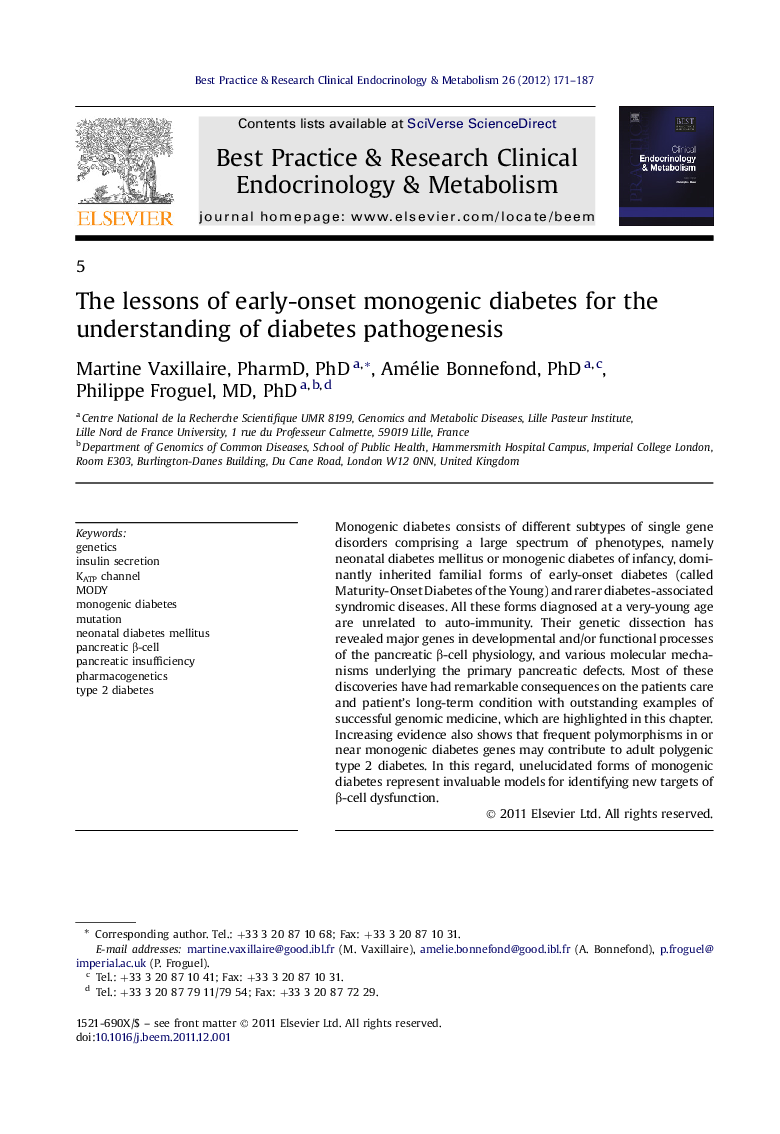| Article ID | Journal | Published Year | Pages | File Type |
|---|---|---|---|---|
| 2791800 | Best Practice & Research Clinical Endocrinology & Metabolism | 2012 | 17 Pages |
Monogenic diabetes consists of different subtypes of single gene disorders comprising a large spectrum of phenotypes, namely neonatal diabetes mellitus or monogenic diabetes of infancy, dominantly inherited familial forms of early-onset diabetes (called Maturity-Onset Diabetes of the Young) and rarer diabetes-associated syndromic diseases. All these forms diagnosed at a very-young age are unrelated to auto-immunity. Their genetic dissection has revealed major genes in developmental and/or functional processes of the pancreatic β-cell physiology, and various molecular mechanisms underlying the primary pancreatic defects. Most of these discoveries have had remarkable consequences on the patients care and patient’s long-term condition with outstanding examples of successful genomic medicine, which are highlighted in this chapter. Increasing evidence also shows that frequent polymorphisms in or near monogenic diabetes genes may contribute to adult polygenic type 2 diabetes. In this regard, unelucidated forms of monogenic diabetes represent invaluable models for identifying new targets of β-cell dysfunction.
